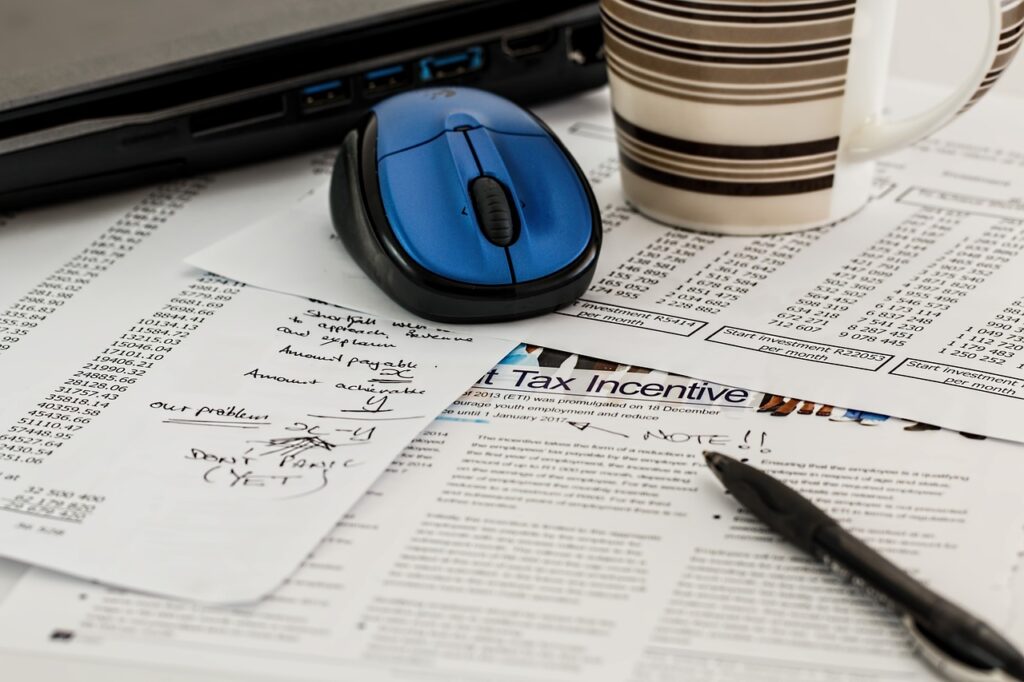Managing your finances as an expat can be a daunting task, especially when navigating different currencies, tax systems, and banking practices. Here are some essential tips to help you manage your money effectively while living abroad.
Key Points to Highlight
- Understanding double taxation treaties and expat taxes.
- Setting up a global bank account or managing finances abroad.
- How to plan for retirement as an expat.
- How to find the best insurance for expatriates.
Open a Local Bank Account
Opening a local bank account is essential for expats looking to manage their finances efficiently in a new country. By setting up a local account, you can significantly reduce or eliminate international transaction fees, which often add up quickly when relying on foreign accounts. Additionally, having a local bank account streamlines everyday transactions such as paying utility bills, receiving your salary, and shopping locally. Most banks offer online and mobile banking services, enabling you to track your spending and manage your funds with ease. When choosing a bank, research the options available to expats, including accounts with low fees, competitive exchange rates, and flexible terms. Remember to prepare the necessary documents, such as proof of identity, address, and, in some cases, employment details, to ensure a smooth application process. A local bank account not only simplifies financial management but also helps you integrate seamlessly into the local economy, making your expat experience more convenient and cost-effective.
Understand Tax Obligations
Paying taxes as an expat can be tricky, especially if you have to pay taxes in both your home and host countries. This is called dual taxation. To avoid paying taxes twice, check if your home and host countries have a tax treaty. These agreements can help you save money by giving you credits or exemptions. If you’re unsure about the rules, it’s a good idea to hire a tax consultant who knows about expat taxes. They can help you file your taxes correctly and avoid mistakes. Make sure to stay updated on deadlines and any changes in tax laws so you don’t face penalties. Taking these steps can make managing your taxes easier and less stressful.

Invest in International Health Insurance
Healthcare costs are different in every country, and they can sometimes be very expensive. To make sure you get the care you need without spending too much money, it’s a good idea to get international health insurance. This type of insurance covers medical costs, whether it’s a doctor’s visit, hospital stay, or emergency care, and it can save you from big, unexpected bills. When choosing a plan, compare different policies to find one that fits your health needs and your budget. Some policies even cover regular check-ups and treatments in multiple countries. Having good health insurance gives you peace of mind and helps you focus on enjoying your time abroad without worrying about medical expenses.

Monitor Exchange Rates
Currency fluctuations can affect how much you save and spend as an expat. Exchange rates often change, which can make your money worth more or less when you convert it. To stay on top of this, use online tools to track exchange rates and plan your transfers when rates are better. If you need to send money regularly, look for currency exchange services with low fees, as these can save you a lot over time. Avoid using traditional banks for transfers, as they often charge higher fees and offer less favorable rates. Managing currency fluctuations wisely can help you protect your savings and make your money go further.
Leverage Digital Tools
For those people living outside and managing finances can be challenging, but thankfully, there are many digital tools that make it much easier. Budgeting apps are a great way to track your spending and create a plan for saving money. These apps often allow you to set monthly goals and monitor your expenses, helping you stay on top of your finances. Additionally, international money transfer services make it simple to send money across borders without the high fees typically charged by traditional banks. These services are quick and easy to use, allowing expats to manage their finances no matter where they are. Expense tracking tools can also help you keep a detailed record of your daily spending, ensuring that you don’t go over budget.

These digital tools for expats can simplify your financial management, giving you more time to enjoy your new life abroad without worrying about money.
Plan Your Retirement Savings
If you’re working abroad, it’s important to think about your retirement savings. Many countries have different pension systems, so take the time to learn how the system works in the country where you’re living. This will help you understand how to save for retirement while you’re working. In some cases, you may also want to consider offshore investment options. These investments allow you to save and grow your money outside of your home country, which can be a good option if the local pension system doesn’t meet your needs. Planning ahead for your retirement will give you peace of mind and help secure your financial future, even while living abroad.
Protect Yourself Against Fraud
Living abroad can sometimes make you vulnerable to financial scams. Scammers may target expats with offers that seem too good to be true, so it’s important to stay cautious. Always verify the legitimacy of any financial services or offers you receive, especially if they come unexpectedly. Before sharing any personal information, make sure the platform or service is secure. Using trusted, well-known financial tools and websites can help protect you from fraud. By being careful and doing your research, you can avoid financial scams and keep your money safe while living abroad.
Build an Emergency Fund
Having an emergency fund is essential for expats, as unexpected expenses can arise at any time. Whether it’s a medical emergency or the need to travel back home quickly, having savings set aside can give you peace of mind. It’s a good idea to aim for saving enough to cover at least 3 to 6 months’ worth of living expenses. This fund should be kept in an account that is easy to access, so you can use it in case of an urgent situation. Planning ahead and building an emergency fund helps you stay financially secure, even when life throws surprises your way.
Stay Compliant with Local Laws
Understanding the financial regulations in your host country is very important for expats. Each country has its own rules about things like banking, investments, and property ownership. To avoid legal issues, make sure you know and follow these local laws. For example, some countries may have specific rules about how you can open a bank account or invest money. Similarly, if you’re thinking of buying property, it’s essential to understand the local laws about foreign ownership. Being compliant with these regulations helps you avoid fines and ensures that your finances are managed legally while living abroad.

Seek Professional Advice
Managing finances across different countries can be tricky, especially when it comes to taxes, investments, and saving for the future. That’s why it’s a good idea to consult with financial advisors who specialize in helping expats. These experts can guide you through the complexities of cross-border finance and provide advice tailored to your situation. They can help you make smart decisions about managing your money, whether it’s setting up a retirement plan, handling international taxes, or investing in a foreign country. Getting professional financial advice ensures you’re making the right choices for your financial health while living abroad.